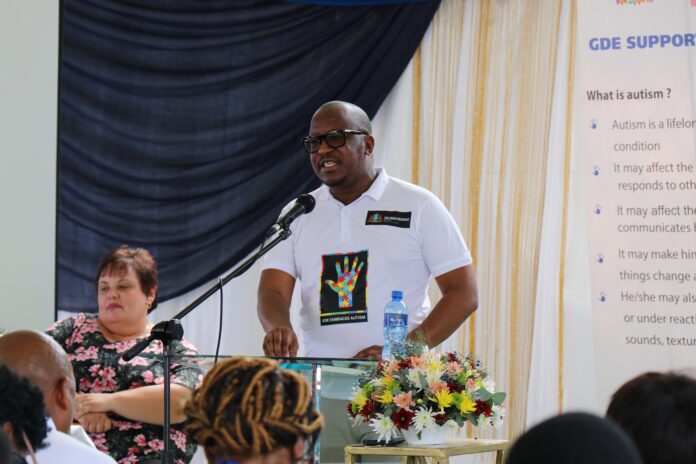Gauteng MEC for education Matome Chiloane has reiterated that disabled students are not second-class citizens.
He was speaking to parents, caregivers and teachers at the World Autism Awareness Day, annually observed on April 2, at Phelang LSEN School, a special needs school in Kwa-Thema in Ekurhuleni on Sunday.
Autism is a developmental disorder caused by a combination of genetic and environmental factors with symptoms that appear within the first three years of life.
Chiloane said that government needs to improve infrastructure and resources in special needs schools so that there is a balance in all of them.
“Infrastructure is currently a problem that needs urgent attention. My predecessor, who is now the premier of Gauteng, Panyaza Lesufi, always emphasised that learners with disabilities are not third-class citizens,” said Chiloane.
“This remains true, given the effort and the care which our teachers at our special schools give to our learner.
“The results of these efforts are witnessed through our learners. Despite their challenges, they can reach their potential and excel academically. One of our successes is the Olympia Park High School, which received a 100% pass rate in the 2022 academic year.”
The MEC further spoke about how autism impacts families, stating that it can be extremely stressful to meet the complicated requirements of a person with autism.
“I am sure [that] as parents of children with autism [you] understand how expensive occupational therapists are.
“Every parent wants the best possible relationship with their kids. Children with autism experience fear and frustration in social situations, but parents may help children acquire confidence, especially those who are on the high-functioning end of the spectrum.”
Irene Mathenjwa, a mother of 17-year-old non-speaking autistic advocate Zekwande Mathenjwa from Garsfontein in Pretoria, shared that her son was diagnosed with autism at two-years-old.
Despite being declared incapable to speak, he has become a success in life.
The turnaround was when Zekwande was introduced to a methodology to speak using a stencil tool. He types out words and constructs sentences.
“That is the point where we got to communicate with him and understood his emotions, Mathenjwa said.
“The first thing that he said to us was why do you want to change me to become like you because I’m happy with the way I am. So, we got to accept autism and Zekwande’s journey.”
Zekwande has found his purpose in life and wants to reach out to the millions of autistic children out there, particularly in rural areas, where most children do not have access or the privilege he got in the journey of his life.
Through his foundation, he does work that includes counselling parents and community members, so they can understand the disorder and experience what it is like to live with autism.
Follow @SundayWorldZA on Twitter and @sundayworldza on Instagram, or like our Facebook Page, Sunday World, by clicking here for the latest breaking news in South Africa. To Subscribe to Sunday World, click here



